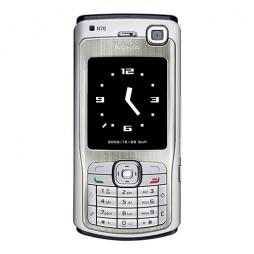It's a new year, and the Mobile Minute is back to bring you the latest. We've got coverage on doctors using mobile money for bus fares for fistula patient, Britain's minister of civil society questioning Apple's no-donation apps policy, the BBC's coverage on how hackers can eavesdrop on GSM calls, the California Supreme Court's ruling that police can search the cell phones of arrested people without a warrant, and CGAP's look at current, non-mobile money transfer systems in Haiti.
- CNN reports on the growing uses of mobile payments and transfers in Africa, with a focus on how doctors in Tanzania use mobile money transfers. In order to reach rural women who can not afford to get to the hospital in Dar es Salaam for fistula surgery, doctors send enough money for bus fare directly to the women's phones to ensure that they can make it to the hospital. (via Textually)
- The Guardian reports that Nick Hurd, Britain's minister of civil society, will be joining in the growing protest against Apple's decision to not allow donations to charities and non-profits via iPhone and iPad apps.
- At the Chaos Computer Club Congress in Berlin, a pair of hackers used basic Motorola phones and open source software to demonstrate a way to listen in on any GSM call. The BBC reports, "[...] the pair took attendees through all the steps that led from locating a particular phone to seizing its unique ID, then leap-frogging from that to getting hold of data swapped between a handset and a base station as calls are made and texts sent." After developing an encryption key, the hackers were able to listen in on calls.
- As a result of a recent ruling from the California Supreme Court, police are now able to search the cell phones of arrestees without a warrant. The ruling came from the judges' decision that once someone is arrested, he or she loses their privacy rights to anything on their person at the time of the arrest.
- Curious about why mobile banking and payments are useful? A new CGAP article looks at two current, non-mobile systems of transferring money in Haiti, and examines the high amount of time and money that both the giver and recipient must expend in order to send funds across the country.
[Mobile Minute Disclaimer: The Mobile Minute is a quick round-up of interesting stories that have come across our RSS and Twitter feeds to keep you informed of the rapid pace of innovation. Read them and enjoy them, but know that we have not deeply investigated these news items. For more in-depth information about the ever-growing field of mobile tech for social change, check out our blog posts, white papers and research, how-tos, and case studies.]
Image courtesy Flickr user QiFei


Post new comment